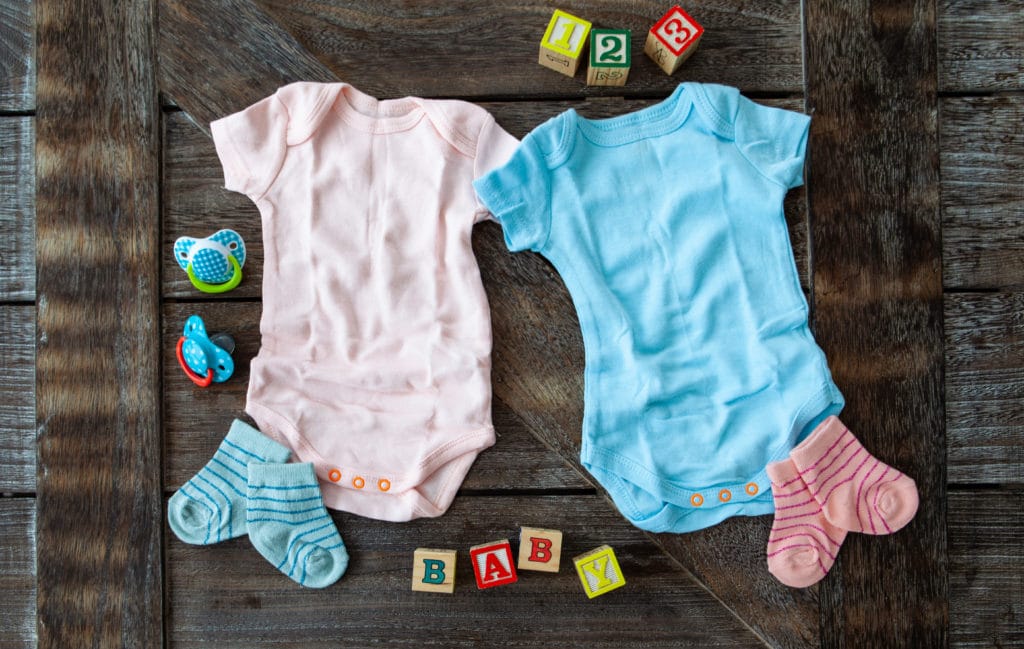Gender stereotypes are fuelling a mental health crisis among children and causing ‘serious, long-term harm’

Assuming a girl likes pink and boys blue, among other gendered assumptions, can cause long-lasting mental harm to children, a study has found. (Stock photograph via Elements Envato)
“Harmful” gender stereotypes have fuelled a sprawling mental health crisis pelting young people across Britain, a troubling report has warned.
Rigid ideas and expectations of gender were identified by researchers as the root of children and teen’s negative mental health that ripples into adulthood, ranging from body image issues, eating disorders, rocketing rates of male suicide and violence against women and girls.
The study, commissioned by one of Britain’s top gender equality campaigning charity the Fawcett Society and published Tuesday (15 December), found that stereotypes worsen girl’s self-esteem and lead to poorer reading skills among boys.
Leading Fawcett Society chiefs described gendered pigeon-holing as “everywhere” and causing “serious, long-lasting harm”, while urging the government to reform education to tackle this.
Six in 10 parents admit their stereotyping of children is harmful
Conducted by the Commission on Gender Stereotypes in Early Childhood, the 18-month-long study found three-quarters of parents said they treat young people differently based on their gender from an early age.
But the same was found when parents envisioned their children’s futures – they were seven times more likely to imagine their sons working in construction. For girls, they were three times as likely to see them become nurses or carers.
Six in 10 admitted that such differential treatment is harmful to kids, while 70 per cent of mothers and 60 per cent of fathers felt this treatment leads to boys struggling to talk about emotions.

Entrenched gender stereotypes are harming children’s mental health, a report has found. (Stock photograph via Elements Envato)
“From ‘boys will be boys’ attitudes in nursery or school, to jobs for boys and jobs for girls views among some parents, these stereotypes are deeply embedded and they last a lifetime,” said Sam Smethers, chief executive of the Fawcett Society.
“We need to end the ‘princessification’ of girls and the toxification of boys. The commercial sector too often uses gender stereotypes and segregates boys and girls simply to sell more products.
“But this is not about making everything gender-neutral. We also have to make women and girls visible when, because of pre-existing bias, the default male will still be the prevailing assumption.
“So for example, routinely showing children women leaders or scientists is important.”
Smethers added that parents do acknowledge the faults with strictly gendering children in this way and do want to scrap such expectations altogether.
Gendered stereotypes must be scrubbed from education and the commercial sector, urge charity
Yet, with gendered stereotypes so entrenched, how can parents battle against it? Education is the place to start, the commission said.
The group has urged the Department of Education to make challenging gendered notions a top priority, whether it be in the curriculum to inspection frameworks, teaching to childcare.
This is key, the commission stressed, seeing that playgroup and nursery staffers and primary school teachers reported dizzying levels of gender stereotyping in education. More than half said they had “often” or “sometimes” witnessed people say “boys will be boys” when male students acted up.
In the commercial sector, the commission described how products are often segregated by advertisers and retailers with the colours pink and blue.
Toy companies, the commission said, must drop coloured-coded advertising, while clothing designers should ditch gendered slogans and imagery. Moreover, content-makers in books, television, film and online were implored to improve the representation of women.
“What every parent hopes for their child, and what educators hope for children in their class, is that they will be free to achieve their potential – yet what the evidence shows is that we still limit our children based on harmful, tired gender stereotypes,” said commission co-chair Becky Francis.
“But this is also a message of hope.
“If government, companies, educators and parents take action, we can challenge stereotypes and change lives, making it possible for our children to live with fewer limitations.”

